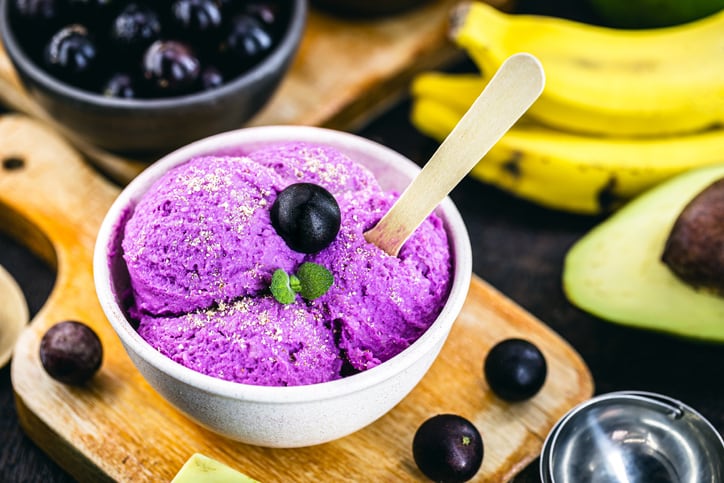The plant-based meat industry has largely been dominated by products made from common plants such as soy, pea, wheat, rice and so on, but Eighth Day Foods is pushing sweet lupins as one of the newest kids on the block to the market, citing heightened versatility and well-researched health benefits in addition to sustainable attributes.
The firm has conducted significant R&D into the processing of sweet lupins, and its patent-pending process based on solid-state fermentation has resulted in a product branded Lupreme.
“Many of today’s plant-based meat alternatives are focused on Western-style foods such as burgers, hot dogs or mince, but Lupreme has a lot more versatility, and we like to think that it is the ideal meat alternative for Asia due to its texture and utility,” Eighth Day Foods Co-Founder Roger Drew told FoodNavigator-Asia.
“This means it will be able to cater to the needs of the region in more ways. It has a very neutral taste, even more so after the fermentation, and it takes on flavours really well.”
The firm’s other co-founder Jen Drew added that one of the ways Lupreme has showcased its versatility is that it can hold up even in the most traditional of Asian cuisines.
“Lupreme can be made into dumplings, dim sum and the like and will also be able to be put into soups as a protein source, which is pretty unique,” she said.
“Most plant-based alternatives are centred around red meat or chicken, but much less fish – Lupreme is ideal as a fish alternative, especially if it is crumbed as a fish fillet, most who have tried it can’t tell the difference as, just like fish, most of the flavouring comes from the coating or sauces and this absorbs the flavours just like fish would.”
The firm’s keenness to develop a product suitable for the Asian palate is because Asia has been designated as one of its main target locations when it goes commercial soon.
“There is a lot of sweet lupin currently already produced in Australia which is mostly now being used as stock feed – so the supply is already available and the supply chain is pretty straightforward,” said Roger.
“So any Lupreme manufactured here can utilise the locally-produced sweet lupins, and the product can then be easily shipped to the rest of the Asia Pacific region, which is why Asia is one of our main target locations.
“In addition, we are also looking to the EU and North American markets, as there is also sweet lupin produced there, and we do want to save on food miles to ensure we remain sustainable and can maintain security over the supply.”
At present, sweet lupins are already being used in the food industry but mostly as egg replacements or gellants, not as plant-based meat alternatives.
Commercial plans
At present, the firm is in the midst of product development work with a local food and beverage MNC, and hopes to move past this phase fairly quickly.
“The hope is to move beyond the product development phase in the next few months, and we expect to be in company production pathways within this year,” said Roger.
“We cannot reveal the name of the MNC at this stage due to agreements and ongoing work, but I can say some strong applications being looked at are in the health and aged care food product category.
“The overall process for supply chain and manufacturing is pretty simple and straightforward, so I dare say we expect to go to production quite fast.”
He also stressed that the firm has no intention of becoming an ingredient supplier of Lupreme, but more of a co-manufacturer of the products.
“We’re more about partnering with major food manufacturers to do the product development at this stage as this is good for quicker scale-up, but we’re definitely not looking to just be an ingredient supplier but will be part of the product development all the way,” he said.
Benefits of Lupreme
Besides its versatility, Lupreme also holds the added advantages of being able to confer health and sustainability benefits, both big draws in the plant-based industry today.
“Studies have shown that sweet lupins have a lot of health benefits on their own already, benefitting the heart and bowels as well as assisting with diabetes and weight management, and the fermentation process adds on to these by freeing up amino acids and reducing fatty acids,” said Roger.
“Sweet lupins can provide some 43% protein, 30% of dietary fibre and all nine essential amino acids whilst also being low in carbohydrates and has virtually no starch.”
Jen added that these attributes made Lupreme suitable for consumers on a keto diet in search of high protein foods, as well as those on a plant-based diet.
From a sustainability point-of-view, sweet lupins are known to be the go-to rotation crop in Australia and the EU to return phosphorus and nitrogen to depleted soil.





